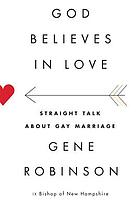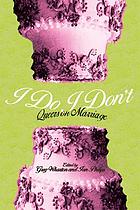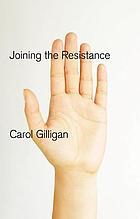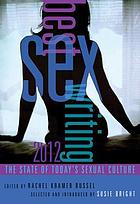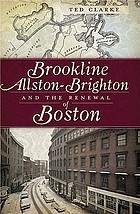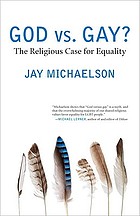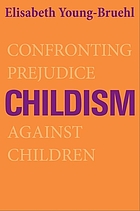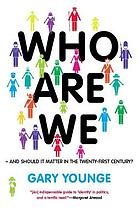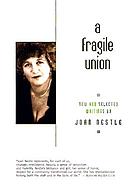A few weeks ago, I got an advance review copy of A. F. Alexander's
Religious Right: The Greatest Threat to Democracy (Blazing Sword Publishing, 2012) through LibraryThing's Early Reviewer giveaway program. Alexander, a refugee from fundamentalist, evangelical Christianity, is on a mission to expose the agenda and tactics of the politicized Christian right and convince her readers that the movement is "ominous, and requires immediate attention."
I agree with Alexander that the religious right is not a force to be underestimated, and also agree with her that their vision of America as a nation does not jibe with mine, most of the time (frankly, I
enjoy going about my homosexual ways without fear of arrest, like my bodily autonomy, and wouldn't give a shit if our president
were Muslim and foreign-born). However, if you're interested in reading about the rise of conservative Christian political clout since the 1960s, there are other books I would recommend you read instead of this one -- if for no other reason than that they are well-written and copy-edited. Alexander is clearly passionate about her subject, but I can't help feeling that her energy might have been better spent on a memoir (a la Deborah Feldman's
Unorthodox: The Scandalous Rejection of My Hasidic Roots), a work of fiction (e.g. Miriam Toews'
A Complicated Kindness) or perhaps curating a website or blog that might serve as a gathering space for ex-fundies (see, for example,
No Longer Quivering) or contributing pieces to a news blog that covers religion and politics (see
Religion Dispatches). While her research might come from an authentic and personal space, it's unclear what her polemic does that other texts have not done before, and better.
I definitely wish Alexander well in her life and in her growth away from the fundamentalist Christianity she found personally (and politically) toxic. Prospective readers interested in religious fundamentalism of the modern era, however, would do better to check out one of the following baker's dozen worth of titles that tell the story of modern American evangelical Christianity in much more readable prose, along with substantive evidence and analysis:
Thirteen Books to Read Instead of Religious Right:
Armstrong, Karen. The Battle for God (Alfred A. Knopf, 2000). Ex-nun, historian or religion, and public intellectual Karen Armstrong offers a sweeping historical and theological analysis of the rise of fundamentalism in the modern era in the three Abrahamic faiths: Judaism, Islam, and Christianity.
Part history, part psychology, part political theory, this is a
tour de force.
Balmer, Randall. Mine Eyes Have Seen the Glory: A Journey into the Evangelical Subculture in America (4th ed. Oxford U.P., 2006). Originally published in 1993 and turned into a PBS series by the same name, this memoir-cum-ethnographic study explores various sites of evangelical Christianity in the U.S. circa the mid-1980s.
Full disclosure: Randy is an Oregon Extension alum and participated in my oral history project.
Erzen, Tanya. Straight to Jesus: Sexual and Christian Conversions in the Ex-Gay Movement (University of California Press, 2006). Sociologist Erzen delves deep into the culture of the ex-gay movement, conducting ethnographic research on-site at New Hope, the oldest ex-gay ministry in the United States. Her empathetic analysis humanizes her subjects, persistently allowing them to make meaning of their own lives, even as she raises concerns about the ex-gay movement's notions of gender and sexuality.
Fallon, D'Arcy. So Late, So Soon (Hawthorne Books, 2004). Fallon's memoir is a beautiful meditation on her reasons for joining a Christian commune in Northern California as a footloose adolescent, her love affair with fundamentalist Christianity, and her later escape from the community's demanding clutches. Fallon doesn't gloss over the controlling, abusive aspects of her experience she helps us into an understanding of what it was her younger self found compelling about Lighthouse Ranch.
Frank, Doug. A Gentler God (Albatross Books, 2011). Part memoir, part theological exegesis, part history of twentieth-century evangelical culture, historian of ideas Doug Frank explores the abusive nature of fundamentalist, evangelical Christian theology and suggests a more loving way forward.
Full disclosure: Doug is a former professor of mine, and participated in my Oregon Extension oral history project.
Frykholm, Amy. Rapture Culture: Left Behind in Evangelical America (Oxford U. P., 2007). Herself a child of evangelical culture, Frykholm uses social science research methods to explore the popular culture of the
Left Behind novels, interviewing readers about how this fictional depiction of the end times informs their faith and everyday lives.
Frykholm, Amy. See Me Naked: Stories of Sexual Exile in American Christianity (Beacon Press, 2011). Frykholm's second work is a series of essay-length case studies built from length interviews she conducted with Christians who struggle (or have struggled) with embodiment and sexuality in relation to their religious faith.
Goldberg, Michelle. Kingdom Coming: The Rise of Christian Nationalism (W. W. Norton, 2006). Journalist Goldberg explores the thinkers and activists behind Christian nationalism, or Dominionism -- the segment of the religious right that believes that America was founded as, and should be returned to,
Jordan, Mark D. Recruiting Young Love: How Christians Talk About Homosexuality (University of Chicago Press, 2011). Richard Reinhold Niebuhr Professor of Divinity at Harvard Divinity School, with a joint appointment Women, Gender, and Sexuality, Jordan offers a series of case studies in Christian rhetoric about homosexuality across the twentieth century.
Lamott, Anne. Traveling Mercies: Some Thoughts on Faith (Pantheon Books, 1999). If you're interested in why a dreadlock-sporting, pro-choice leftist would be drawn to evangelical Christianity, this is the book for you.
Ostling, Richard and Joan. Mormon America: The Power and the Promise (Harper, 1999). A thoroughly-researched, historically- and theologically- informed account of the Latter-Day Saints and their place in American culture. Following the involvement of the LDS church in the anti-marriage equality activism, and Romney's bid for the U.S. Presidency, Mormons are in the spotlight more than ever, and it's useful to have some historical perspective on this peculiarly American institution.
Rosin, Hanna. God's Harvard: A Christian College on a Mission to Save America (Harcourt, 2007). Recently-founded Patrick Henry College sent more interns to the Bush White House than any other institution of higher education. Journalist Rosin sets out to discover why, delivering a troubling, though not entirely unsympathetic, portrait of Patrick Henry's mission and student body. See also:
Right: Portraits from the Evangelical Ivy League.
Radosh, Daniel. Rapture Ready: Adventures in the Parallel Universe of Christian Pop Culture (Scribner, 2008). This rolicking tour of Christian rock, Silver Ring Thing purity events, Christian publishing, and more also offers on-the-ground insight into how political and theological worldviews are marketed via kitsch and community in American consumer culture.

